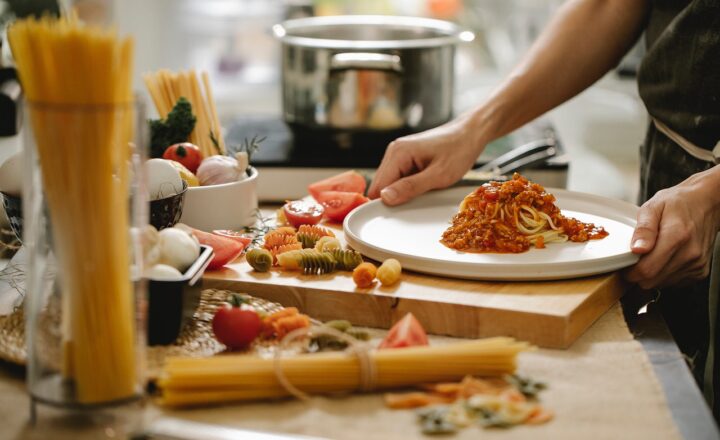
Meal prep has soared in popularity in recent years, especially among busy individuals searching for ways to eat healthier without spending hours in the kitchen every day. Whether you’re a student, a professional, or a homemaker, the principle of meal prepping can save you time, money, and stress while keeping your diet on track. In this comprehensive guide, we will walk you through the essentials of meal prep, including techniques, benefits, and tips to get started.
1. What is Meal Prep?
Meal prep encompasses cooking, portioning, and storing meals that you can consume throughout the week. This can involve preparing multiple meals at once and neatly packaging them for easy access, or simply organizing your ingredients to facilitate cooking during the week.
The main goal is to streamline your meals, ensuring that your busy schedule doesn’t derail your health goals.
2. The Benefits of Meal Prepping
Meal prepping comes with a myriad of benefits:
- Time-Saving: By preparing large batches of food in one go, you can dramatically reduce the time spent cooking during the week, freeing up hours for other tasks or relaxation.
- Cost-Effective: Buying ingredients in bulk not only helps save money but also reduces food waste, as planned meals lead to more conscious shopping.
- Healthier Choices: Meal prepping allows you to control your ingredients, portion sizes, and nutritional values, leading to healthier eating habits compared to impulsive takeout or convenience foods.
- Less Stress: Knowing you have meals ready to go takes away the daily hassle of deciding what to eat and cooking from scratch at the last minute.
These benefits make meal prep an excellent strategy for anyone aiming to maintain a balanced lifestyle amidst a busy schedule.
3. Getting Started with Meal Prep
Here’s how you can kick off your meal prep journey:
Step 1: Plan Your Meals
Begin by planning your meals for the week. Look at your schedule and identify the days when you’ll need prepared meals. Write down a list of recipes or dishes you want to include. Consider seasonal ingredients and utilize what you already have in your pantry.
Step 2: Create a Shopping List
Based on your meal plan, create a comprehensive shopping list. This will help you buy everything you need in one go and prevent unnecessary trips to the grocery store.
Step 3: Cook in Batches
Dedicate a few hours to batch cooking. This means cooking larger quantities of a particular dish (like a stew, casserole, or grains) that you can easily portion out for multiple meals. Preparing staples, such as grains and proteins, can also make assembling meals during the week easier and faster.
Step 4: Store Your Meals Correctly
Invest in quality containers – glass containers with airtight lids are ideal as they preserve freshness and allow you to easily see what’s inside. Label each container with the name of the dish and date it was prepared to keep track of freshness.
4. Easy Meals to Start With
Here are some meal prep ideas that are simple and delicious for beginners:
- Veggie Stir-Fry: Cook a variety of chopped vegetables with tofu or chicken, and serve over rice or quinoa. Portion it out for the week and reheat as needed.
- Overnight Oats: Prepare individual jars of overnight oats for breakfast. Combine oats, milk (or a dairy-free alternative), yogurt, and toppings like fruit and nuts for a nutritious start to the day.
- Soup or Chili: Cook a large pot of soup or chili. These meals freeze well and can be enjoyed at any time of the week, making them perfect for meal prep.
- Grilled Chicken with Roasted Vegetables: Season and grill chicken along with an assortment of vegetables (like bell peppers, zucchini, and carrots) for a lean, flavorful meal that stores well.
These recipes are not just easy to make; they also offer the flexibility to switch ingredients based on your taste preferences.
5. Tips for Successful Meal Prep
To make the most out of your meal prep experience, consider these tips:
- Start Small: If you’re new to meal prep, begin with prepping just a few meals for a couple of days instead of a whole week. Gradually increase as you become more comfortable.
- Keep It Simple: Select recipes that are quick and easy to prepare. Fewer ingredients often mean less prep and cooking time.
- Practice Food Safety: Always refrigerate your meal prep within two hours of cooking to avoid the risk of foodborne illnesses. Store foods properly, and do not exceed the recommended freezing times.
- Experiment With Flavors: Meal prep doesn’t have to be boring. Adjust spices, herbs, and sauces to keep meals exciting and enjoyable.
Implementing these tips can streamline your meal prep routine, making it more efficient and enjoyable.
Conclusion
Meal prepping empowers you to take control of your meals, saving you time and enhancing your health. Whether you are prepping for weight loss, saving money, or simply making mealtime less stressful, getting started doesn’t need to be daunting. Follow the steps outlined in this guide, and soon you’ll find that meal prepping can become a simple yet rewarding part of your weekly routine.








